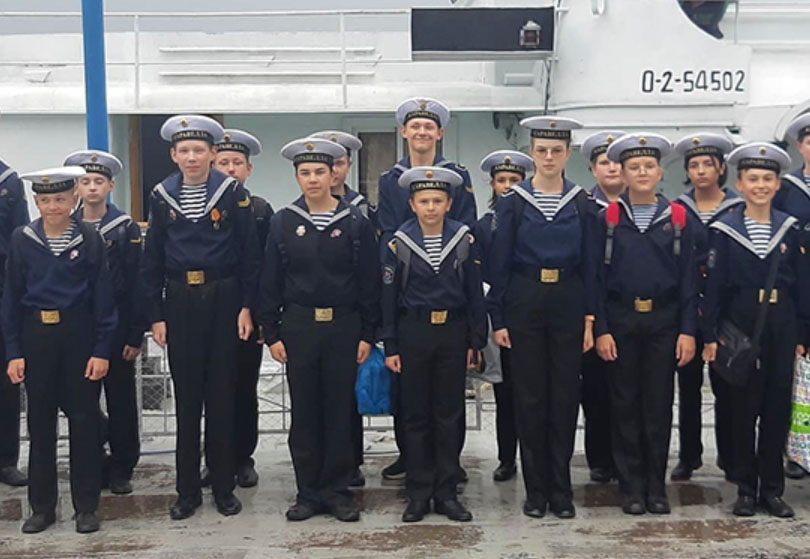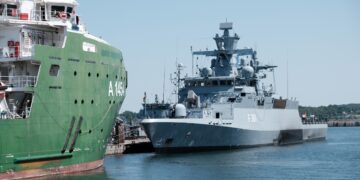How does a navy get enough new recruits? A question that arises in many countries around the world, at least as long as the local economy is booming and offers many, often better-paid jobs. While Germany likes to present itself as less military and advertises with soft factors such as free WLAN or far-reaching working time regulations, the Russian navy focuses on addressing people at an early stage and awakening their enthusiasm for seafaring.
Some time ago, we received a report from the central Russian city of Novosibirsk that cadets from the Karavella Children's Naval Centre were taking part in a maritime exercise on the Glazunova ship from Project 780. Sponsored by the High Command of the Navy, the youngsters were able to spend three days looking at, touching and trying out everything that makes up a ship and seafaring itself. Information about river shipping was provided as well as the basics of navigation. There were also briefings on the various safety devices and instructions on the correct behaviour in emergency situations. More important than imparting technical knowledge, however, was to familiarise the children with life on board and the camaraderie they experienced, because even in Russia, young people do not join the navy on their own. Were these days effective in recruiting new recruits? That will probably only become clear in a few years' time.
After 259 exciting days of building and learning, I am taking my leave as chief of staff with this message. I would like to thank all readers, followers and fans for their continued interest, and my colleagues and supporters for their constructive contribution. Without them all, marineforum online would not be as successful as it is today. Stay tuned to mfo!
Text: mb; Photo: MoD Russia












Thank you, Mr Bredick, for the great job you did in setting up MFO! Without you, it would hardly have got off to such a good start. I wish you all the best and good luck for the future. I am sure that we will continue to hear or read from you. Yours, Karsten Schneider